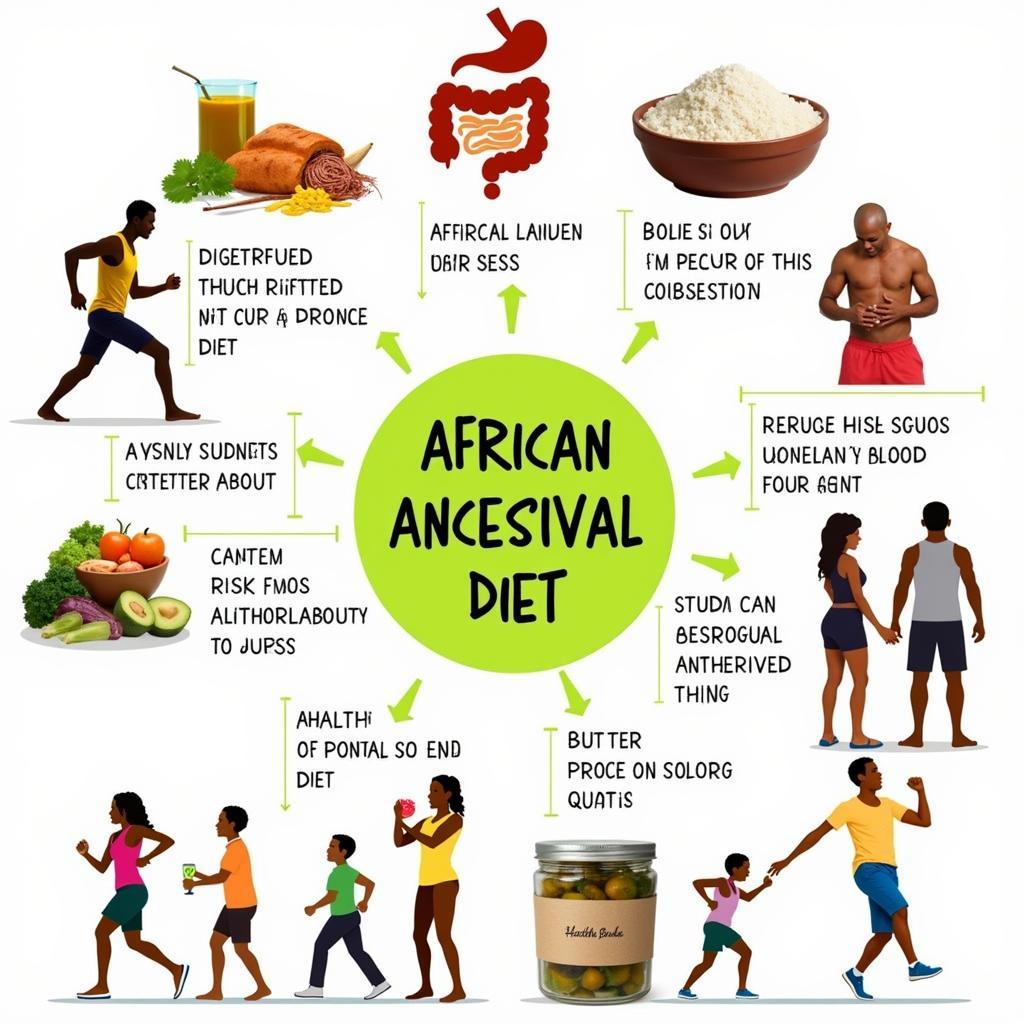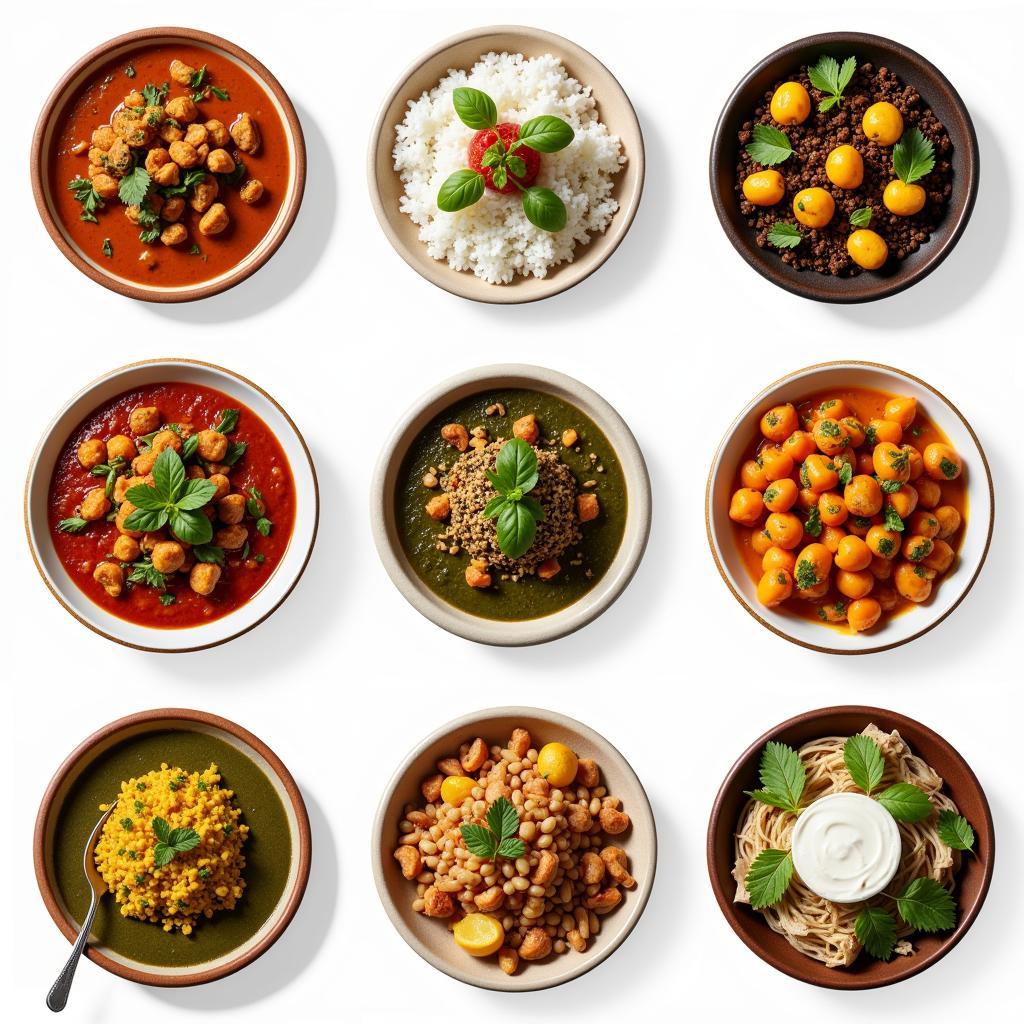Unlocking the Secrets of the African Ancestral Diet
The African Ancestral Diet, a topic of increasing interest, offers a glimpse into the eating habits of generations past. It’s more than just a historical curiosity; it’s a potential roadmap to healthier living, drawing wisdom from time-honored traditions and locally-sourced foods. Exploring this dietary approach reveals a fascinating tapestry of culinary practices and nutritional principles deeply connected to the diverse landscapes and cultures of the African continent. After reading this article, you will be informed about African ancestral diet traditions.
What Constitutes the African Ancestral Diet?
The African ancestral diet isn’t a monolithic entity. It varies significantly across the continent’s diverse regions, reflecting the unique climates, terrains, and cultural practices of each area. However, some common threads weave through these diverse foodways. Traditional African diets generally emphasize whole, unprocessed foods, minimally processed ingredients. Think nutrient-rich staples like sorghum, millet, teff, and various legumes. These grains and pulses provide a foundation of complex carbohydrates, fiber, and essential minerals.
Fruits and vegetables, naturally abundant in many parts of Africa, play a crucial role, offering a wealth of vitamins, antioxidants, and phytochemicals. From leafy greens like amaranth and baobab leaves to vibrant fruits like mangoes, plantains, and indigenous berries, the ancestral diet bursts with flavor and nutritional value. Check out African design png for beautiful representations of African flora.
Protein sources in the traditional African diet are diverse, ranging from fish and poultry to wild game and insects. In some regions, dairy, particularly fermented milk products, also contributes to protein intake. The use of healthy fats, such as those found in nuts, seeds, and certain oils, is another hallmark of this dietary approach.
Health Benefits of the African Ancestral Diet
The emphasis on whole, unprocessed foods in the African ancestral diet translates into numerous potential health benefits. The high fiber content promotes healthy digestion and can help regulate blood sugar levels. The abundance of fruits and vegetables provides a rich source of antioxidants, which may protect against chronic diseases. Moreover, the traditional diet is typically low in processed foods, refined sugars, and unhealthy fats, reducing the risk of conditions like obesity, heart disease, and type 2 diabetes.
 Health Benefits of the African Ancestral Diet
Health Benefits of the African Ancestral Diet
“Many of my patients who have embraced aspects of the African ancestral diet have seen significant improvements in their overall health,” says Dr. Abimbola Adebayo, a registered dietitian specializing in traditional African foodways. “The focus on nutrient-dense, unprocessed foods is key to restoring balance and promoting well-being.”
Adapting the African Ancestral Diet for Modern Living
While fully replicating the ancestral diet might be challenging in today’s world, incorporating its core principles can be incredibly beneficial. Start by prioritizing whole, unprocessed foods. Choose locally sourced fruits, vegetables, and grains whenever possible. Experiment with traditional African grains like millet and teff. Include lean protein sources and healthy fats in your meals. Limit processed foods, sugary drinks, and excessive amounts of unhealthy fats. It’s interesting to note that even hair traditions are connected to culture, as seen in resources like african girl hair on transparent background.
What are the challenges of adopting the African Ancestral Diet?
One challenge is access to traditional ingredients, especially for those living outside of Africa. Another is the time commitment involved in preparing meals from scratch. However, the increasing availability of resources like online stores and recipe books dedicated to African cuisine makes it easier than ever to explore and embrace these time-honored foodways.
 Modern Adaptations of the African Ancestral Diet
Modern Adaptations of the African Ancestral Diet
“The African ancestral diet is a treasure trove of culinary wisdom,” explains Chef Kofi Atta, a renowned expert in traditional African cuisine. “By rediscovering and adapting these ancient foodways, we can unlock a path to healthier and more vibrant lives.” Even in diverse communities like the African girls community in India, there’s a growing interest in these dietary principles.
Conclusion
The African ancestral diet offers a valuable perspective on healthy eating. By embracing its emphasis on whole, unprocessed foods, we can take steps towards a more nourishing and sustainable way of life. Rediscovering the culinary heritage of our ancestors can empower us to make informed choices that support our well-being and honor the wisdom of generations past. For those interested in cultural exchange, platforms like african girl in bangalore locanto might offer opportunities for connection. This diet isn’t just about what we eat; it’s about connecting with a rich cultural legacy.
FAQ
- Is the African ancestral diet suitable for everyone? While generally healthy, individual dietary needs vary. Consulting a healthcare professional or registered dietitian is always recommended before making significant dietary changes.
- Where can I find recipes for traditional African dishes? Numerous online resources, cookbooks, and blogs are dedicated to African cuisine.
- Are there any specific foods to avoid on the African ancestral diet? Highly processed foods, refined sugars, and excessive amounts of unhealthy fats are generally discouraged.
- Can I follow the African ancestral diet if I’m vegetarian or vegan? Yes, with careful planning. The diet naturally emphasizes plant-based foods, and there are many vegetarian and vegan variations of traditional African dishes.
- How can I incorporate the African ancestral diet into a busy lifestyle? Start by making small, gradual changes. Focus on incorporating more whole foods and preparing simple meals using traditional ingredients.
Need More Help?
For further assistance and inquiries about the African ancestral diet and related topics, feel free to contact us:
Phone: +255768904061
Email: kaka.mag@gmail.com
Address: Mbarali DC Mawindi, Kangaga, Tanzania.
Our dedicated customer support team is available 24/7 to address your needs. We also recommend researching African girls hennur for more cultural insights.
